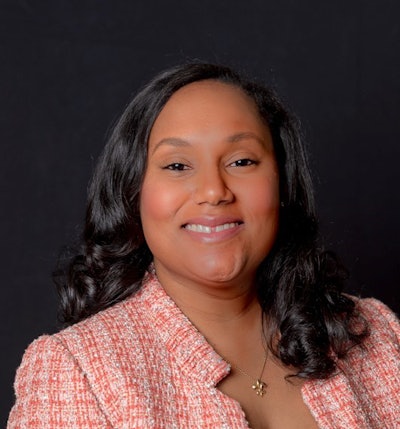“Leave Ready” is a campaign by Xavier University of Louisiana (XULA) for its students centered on the notion of readiness. Signs and graphics, at one point, populated the campus with pictures of students and successful alumni with the slogan “Leave Ready.” These helped students to visualize success at their university, but also through photographs of alumni who looked like them. The campaign harkens to something I often heard in the classroom as a student at XULA, “When you leave here, you will be prepared.” It crystalizes the experience of witnessing XULA students identify, strategize, and realize dreams that were statistically and historically unattainable for many African-Americans. Seeing Black women and men beating the odds as an everyday occurrence is what happens at HBCUs; in my case, that institution was XULA, and it is inspirational. In 2007, I was an inspired young alumna and just finished my first year as a program manager in student affairs at my alma mater. Encouraged by my mentors, the then dean and associate dean of students, I left New Orleans focused on becoming a student affairs administrator. I was told I would be successful, and XULA was waiting for me when I finished.
 Dr. Nadrea R. Njoku
Dr. Nadrea R. NjokuWhile my focus on historically Black colleges and universities (HBCUs) never wavered, my studies as a master and doctoral student at Indiana University broadened my perspective. Exposure to research and best practices illustrated that college access, degree attainment and readiness was more of an institutional lift than I had imagined. As a student at XULA, it appeared that then president, Norman C. Francis and his staff were magically lifting our social mobility. However, it was not magic, but hard work. Thus, my goals evolved. I no longer fixated on how I could find my way back to XULA as an administrator and focused more on how to hoist all HBCUs. I went from a prospective administrator to a soon-to-be professor. I was ready!
Not only was I ready, but there was also a growing legion of Black female emerging scholars and soon-to-be professors with interests in HBCUs. Our interest in tenure was necessary — Black women made up 3 percent of all instructors at degree-granting institutions, and only 1.5 percent of full professors (IPEDS, 2017). We felt drawn to and inspired by Black female professors at all ranks to pursue the professoriate — answering their call to join them in the ivory tower. It also felt like the most important means of helping move HBCUs toward a more prosperous future was through publications and conference presentations. Immersion in a rigorous Research-I doctoral program, for me, made the professoriate my activist-centered focus — picking a singular approach and disregarding all other viable approaches to fighting a cause.
After applying to tenure-track positions, fellowships and publishing independently, I wracked my brain about the reasons why opportunities to apply for these positions were not resulting in full-time work. I was ready, but it seemed like the field was not ready for me. But tunnel vision and a lack of flexibility will have you doubting your intelligence and unreceptive to other equally impactful opportunities. Humbled from two years of unemployment, I shifted my focus from faculty positions to non-profit, research-based positions. There is strong scholarship on HBCUs emerging from within various fields, but there is also phenomenal and critical work within the non-profit sector that does not get as much attention.
In my position at the United Negro College Fund’s (UNCF) Frederick D. Patterson Research Institute (FDPRI) I sit on the research team that supports UNCF’s Institute for Capacity Building (ICB). Here we are engaged in the behind the scenes work, the everyday efforts that occur on HBCU campuses after scholarship checks have been handed out. Within ICB and FDPRI we are continuing our effort to support 37 UNCF member institutions, with some overlap of the 24 HBCUs and predominately Black institutions in the Career Pathways Initiative, but also embarking on support for and assistance with institutional accreditation; research and evaluation on equity in guided pathways; and breaking ground as a culturally competent full-service thought partner with our institutions. We have found the sweet spot between working within the halls of HBCUs and a focused pursuit on knowledge production. Over the last five months, I have discovered a hybrid professional space that includes direct institutional engagement, grant writing, new knowledge creation, and strategizing. We arrive every morning to an office of enthusiastic and motivated colleagues whose primary goal is to push HBCUs and predominately Black institutions forward. This work requires engagement with a variety of industries, such as non-profits, for-profits, foundations, data collection firms, private consultants, and Fortune 500 corporations. The pivot from professoriate to the non-profit sector provides me with more insight and opportunities to engage HBCUs than I had ever imagined. They welcome my insight, and our work requires the research skills I honed across my professional endeavors.
If you deem yourself a researcher, don’t limit your scope of potential work to just faculty positions. Researchers and thought leaders are needed in a variety of spaces and impact HBCUs in a multitude of capacities. If you are an HBCU graduate or advocate for these institutions, you are aware of the reach of their impact. Let’s expand our network, READY to support all efforts toward #LiftingAndShiftingHBCUs in a variety of ways. I want to encourage all graduate students with passions at the intersection of higher education and HBCUs to reconsider how you contribute to our field. Yes, we are needed in the professoriate, but we are also needed in the non-profit sector and grant funding foundations. If you are finding yourself at an impasse with your professional goals know you’re ready. But be ready to also be flexible, creative in how your approach to goals, and pivot when necessary.
Dr. Nadrea R. Njoku is a senior research associate at the UNCF Frederick D. Patterson Research Institute.





















